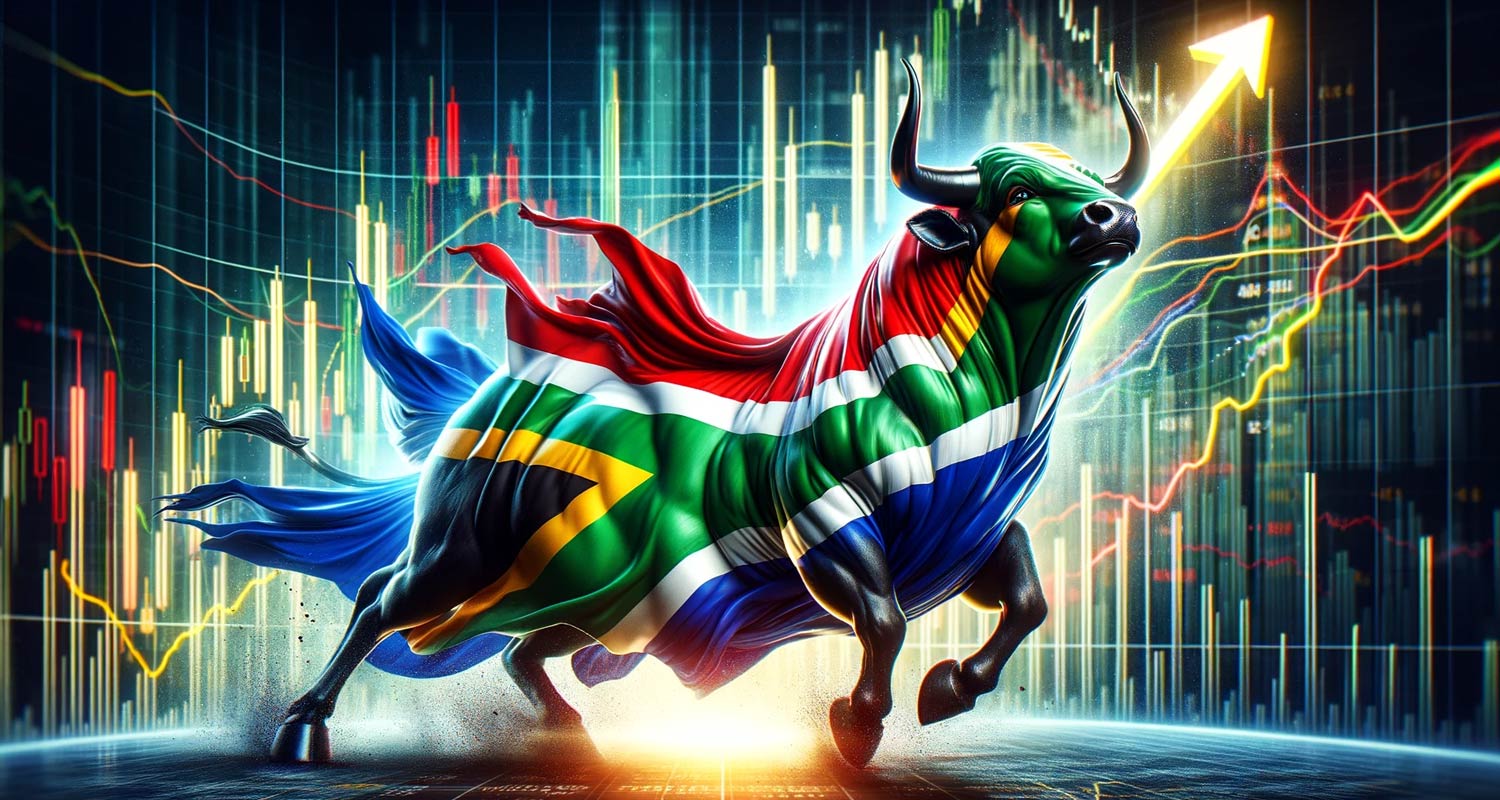 The most pivotal South African election in decades is already turning the tide of the country’s financial markets.
The most pivotal South African election in decades is already turning the tide of the country’s financial markets.
Money has been pouring into the country on a bet that the ANC will win enough of the vote to avoid being forced by left-leaning coalition partners to implement less market-friendly policies. South African bonds absorbed the most cash in April since at least 2019, and the trend is continuing in May. Stocks are at a 15-month high. The rand is one of only five emerging-market currencies to strengthen this year.
To the most bullish investors, South Africa is a comeback story. Foreign investors pulled US$50-billion from its markets over the past decade as the country grappled with a crisis of confidence. Unprecedented power outages stifled economic growth, while corruption and maladministration sapped investor confidence.
“International equity investors are largely underweight South Africa, so their biggest risk is a positive election result driving a stronger currency and a re-rating of both our equity and bond markets,” said Peter Brooke, a portfolio manager at Old Mutual Investment Group. “The low positioning and cheap assets could make this an explosive rally.”
Lessons from around the globe show that elections matter. In 2023, Greece and Argentina elected pro-market leaders who introduced economic reforms. That led to significant market returns, with an MSCI gauge of Greek equities soaring 48% that year and the index for Argentina up 67% in dollar terms.
South African shares have historically performed well over a month horizon following an election, according to Goldman Sachs Group strategists including Sunil Koul. A supportive fundamental backdrop plus “election relief” could spark a rally in domestic-focused stocks, wrote the strategists, who favour domestic cyclicals and banks.
To be sure, South Africa has a lot of convincing to do after years of economic mismanagement, according to Derrick Msibi, CEO of Stanlib Asset Management.
‘Never forget’
“Those who have been disappointed have the memory of an elephant,” Msibi said. “They never forget or easily relinquish their reservations, demanding compelling evidence of change.”
This time last year, President Cyril Ramaphosa’s government was grappling with a crisis of confidence. The rand plummeted to historic lows and yields on local-currency bonds soared to highs last seen during the pandemic. But the electricity supply has stabilised somewhat. The government is on track to post its first primary budget surplus in 15 years, setting it on course to curb growth in worryingly high public debt.
“We hope that growth ticks up, local bond yields move down and the rand remains stable,” JPMorgan Chase & Co strategist David Aserkoff said. “If that happens, then we are confident South Africa will outperform emerging markets sharply, reversing the trajectory of the last 10 years.”
Read: Eskom’s Mteto Nyati: private investment needed in power
Opinion polls have shown that the ANC risks losing its majority for the first time since 1994 in the 29 May election. But concerns that a poor showing may force it to seek alliances with parties to its left has waned.
“Our base case remains that the ANC wins this election outright with an overall majority,” said Razia Khan, head of research at Standard Chartered Bank. “If that doesn’t happen, we still think it’s a likely coalition with relatively benign, relatively centrist coalition partners.”

Parties likely to get the largest shares of the vote outside of the ANC include the Democratic Alliance, the populist Economic Freedom Fighters and the newly formed uMkhonto weSizwe, led by former President Jacob Zuma — who is facing criminal charges relating to corruption.
UBS Group strategists including Manik Narain said the nation’s equities offered the best risk/reward in relation to the upcoming vote. Local stocks could see as much as 17% upside if the ANC enters into a coalition with the DA, they said.
The election premium in bonds is also falling away. Local-currency debt trailed emerging markets for much of the first four months of 2024. But the debt has rallied into the top 10 this quarter, giving investors a return of 6.3% in dollar terms.
Citigroup strategists including Bhumika Gupta have turned overweight on the debt and expect fresh inflows into bonds in the months ahead.
“The risk of the ANC having to team up with the EFF post-election has led to meaningful underperformance in South African bond and credit markets in recent months,” said Roger Mark, an emerging markets fixed-income analyst at Ninety One. “Because we view this scenario as a tail risk only, we are turning increasingly constructive on the country’s assets.”
Credit Agricole went long rand versus the greenback in April, with a target of R18.60/$. The South African currency has already strengthened below that level and was trading around R18.20/$ on Friday.
Not out of reach
Investors need to see the turnaround in state-owned entities persisting beyond the election, continuing improvements at key institutions like the revenue service, as well as successful prosecution of those involved in corruption, said Cumesh Moodliar, CEO of Investec South Africa.
“None of these is out of the reach of government,” Moodliar said. “A concerted effort to follow through is probably the first requirement to rebuilding confidence.” — Colleen Goko, Adelaide Changole and Mpho Hlakudi, with Jorgelina do Rosario, (c) 2024 Bloomberg LP




